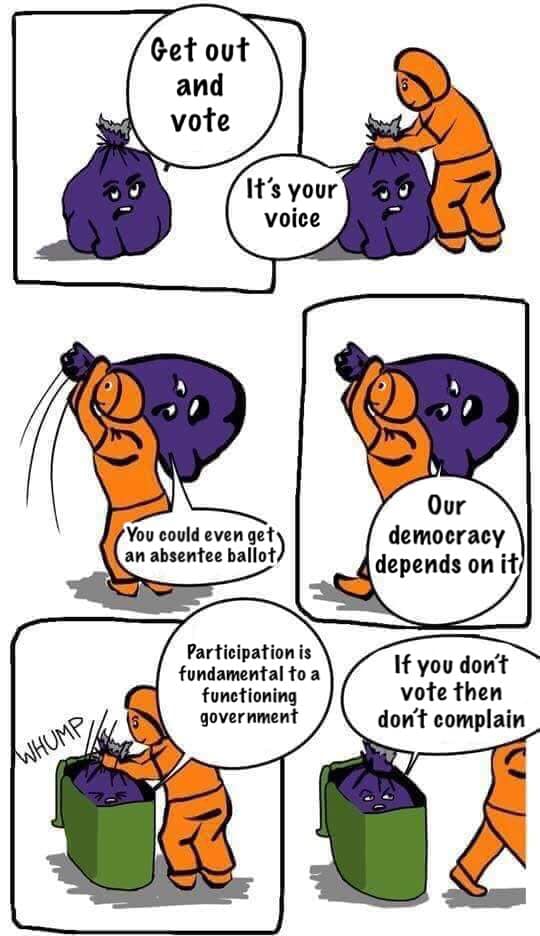Despite not using social media, I still find myself entering discussions with people who remain convinced, despite all of the evidence around us, that statist is the best -ism. In one of the more entertaining conversations on the topic I’ve had, the statist said, “Anarchism sucks as a social system.” I surprised him when I agreed. Anarchism does indeed suck as a social system because a social system can never be anarchism by definition.
Consider the etymology of anarchism. The word anarchism is composed of the Ancient Greek prefix an-, meaning without, and the word arkhos, meaning ruler. Therefore, anarchism literally means without rulers. Now consider a few of the popular social systems advocated by self-proclaimed anarchists. I will start with anarcho-communism. The inclusion of the word communism tells you up front that the system isn’t going to be without rulers. Anarcho-communists believe in the abolition of private property and the implementation of some bizarre system of personal (which they insist definitely isn’t private) property and collectively owned property. The question is, who defines what constitutes private personal property versus collectively owned property? Collectives using democratic principles, of course! Therein lies the problem. A democratic system necessarily has a ruler, the majority vote. If you’re desires don’t align with the majority vote, you’d better shut your trap or face the consequences (which will probably be decided by the same people who voted against your desires)!
What about the mutualists? Mutualism is better defined than anarcho-communism, but just barely. Mutualists advocate for a mutual-credit bank that provides producers nearly interest-free loans (a little interest is OK to cover overhead expenses and we all know such a system could never be manipulated or abused). Moreover, mutualism has a slightly less convoluted system of private property based on usage. If you’re using property for productive purposes, you get to keep using it. If you’re no longer using property for productive uses, someone else can claim it. Hence we’re faced with the questions, who defines what is nearly interest-free in regards to loans and who defines what productive use of property is? Whoever is allowed to answer those questions and enforce their dictates is by definition a ruler.
Finally, let’s consider anarcho-capitalism. According to every other flavor of anarchism, anarcho-capitalism isn’t real anarchism. I guess that means I can skip it. Anyways, if you were curious, the rulers under anarcho-capitalism are the private property owners.
I can think of no social system that could also be without rulers. Therefore, I cannot think of any social system that fit the definition of anarchism. Maybe I lack creativity. Feel free to correct me. Until I’m corrected, I will continue to advocate that anarchism is a method of individual liberation rather than a social system.
The next logical question is, how do I view anarchism through the lens of a method of individual liberation? The answer to that is I view it as methodologies that allow individuals to ignore, bypass, cripple, neuter, obliterate, or otherwise free themselves from unwanted hierarchy. This is one reason I continue to cite the works of Samuel Edward Konkin III. If you set aside his views on Agorist class theory, Agorism is a methodology that uses counter-economics to allow individuals to bypass and potentially cripple and even destroy the hierarchy of the State. It also advocates for individuals to be entrepreneurs so they can control their livelihood rather than depend on another entrepreneur. I also continue to cite the works of Max Stirner, Renzo Novatore, and Friedrich Nietzsche because their writings serve as methods for individuals to liberate themselves from the thought structures (brainwashing) trapping them into believing that being subject to a hierarchy is necessary (or even more absurdly, freedom). The works of crypto-anarchists and the products of cypherpunks are also of significant value because they allow individuals to liberate themselves from the corporate/government surveillance apparatus.
Once freed from unwanted hierarchy, an anarchist is able to define their lives on their terms. They may decide to associate freely with specific other individuals for mutual benefit. Those associates may be long lasting or very short lived. They may choose to help or harm others (and face the consequences of either). They may choose to try to survive on their own. But before they can forge ahead with their life on their own terms, they must be free to do so. Anarchism is, in my opinion, the methodology that one can use to be without rules, an anarchist by the literal definition.
